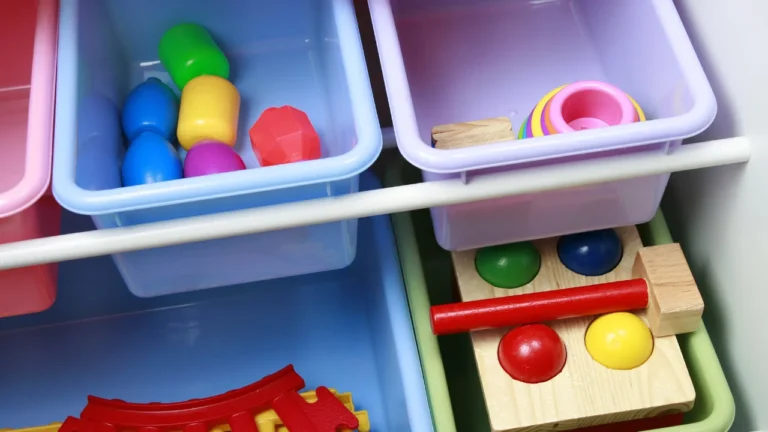Rebellious Teenagers: How To Deal With Rebellion!

Teen Rebellion is a natural part of adolescence, and many teenagers will display some form of rebellious behavior at some point. The teen years are a time of growth, change, and self-discovery, but for parents, dealing with a rebellious teenager can be challenging and frustrating. This article explores the causes of teenage rebellion, ways to deal with an out-of-control teen, and how to stay calm while navigating this stage of life.
Causes of Teenage Rebellion
The Teenage Brain and Its Development
One of the primary reasons behind rebellious behavior in teenagers is the development of the adolescent brain. During the teenage years, the prefrontal cortex, responsible for decision-making and impulse control, is still developing.
This can lead to impulsive, risky behavior as the teenage brain seeks new experiences and sensations. Research has shown that teenagers are more prone to taking risks due to their brain’s reward system, which makes the thrill of engaging in rebellious acts all the more appealing.
Autonomy and Independence
As teenagers transition into adulthood, they naturally seek autonomy and independence. Rebellious behavior can be an expression of their desire for freedom and a way for them to assert their individuality. Parents must be aware of this natural drive and find healthy ways to support their teen’s development. Encouraging responsibility and giving them the opportunity to make decisions within boundaries can help them learn essential life skills and reduce the likelihood of rebellion.
Article Key Takeaways
Parent-Child Relationship Dynamics: Navigating Defiant Behavior
The relationship between a teen and their parents can significantly influence rebellious behavior, particularly when defiance comes into play. When there is a lack of communication, understanding, or trust, a teen may become rebellious to gain attention or assert their independence. In some cases, rebellion can also manifest as defiant actions, making it challenging for many parents to manage.
A strong parent-child relationship can help prevent or mitigate rebellious attitudes and defiant behavior. To build and maintain this relationship, parents should strive to maintain open communication with their teens. Actively listen to their concerns, provide a supportive and understanding environment, and give your teen the opportunity to express their thoughts and feelings.
Sometimes, what looks like rebellion may be a cry for help or a sign of underlying issues. It is essential for parents to recognize the difference between typical teenage rebellion and more severe problems. By being attentive and empathetic, parents can better address the root causes of their teen’s behavior and work together to find solutions.
Many parents may feel overwhelmed or frustrated when dealing with a defiant teenager, but it’s crucial to remember that teens are also navigating a complex stage of life. By fostering a strong parent-child relationship, parents can help guide their rebellious teens toward positive growth and development, ultimately leading to a more harmonious family dynamic.
Societal Norms and Peer Influence
Teenagers are often influenced by societal norms and their peer group, which can significantly impact their behavior. If a teenager’s friends engage in rule-breaking or risky behavior, such as dangerous activities or substance use, they may feel pressure to follow suit. Rebellion is often fueled by the need to fit in or gain approval from peers, leading to various types of teenage rebellion and risk-taking.
Parents should be aware of their teen’s social circle and encourage them to make positive choices. By understanding the influences in their lives, parents can help teens navigate the complexities of adolescence and resist the temptation to engage in dangerous behavior.
One way to support your teen is by having regular conversations about peer pressure and the importance of standing up for their values. Discuss the potential consequences of risky actions and provide guidance on how to cope with challenging situations.
Teens feel a strong need to belong and be accepted by their peers, so it’s essential to help them develop healthy relationships and build a supportive network. Encourage your teenager to form friendships with like-minded individuals who share similar interests and values. By doing so, parents can create a more positive environment for their teens, reducing the likelihood of rebellion driven by negative peer influence.
Moreover, teens need to practice decision-making and assertiveness skills to handle peer pressure effectively. Parents can support their teenager’s growth by providing opportunities to exercise these skills in various social situations. Role-playing scenarios and discussing real-life examples can be effective ways to help teens develop the confidence to make sound decisions and resist negative influences.
In conclusion, understanding the impact of societal norms and peer influence on rebellious behavior is crucial for parents navigating the challenges of raising a teenager. By being proactive and fostering open communication, parents can empower their teens to make better decisions and stand up for their values amidst the pressures they may face.
Dealing with a Rebellious Teenager
Stay Calm and Avoid the Heat of the Moment
When dealing with a rebellious teen, it’s essential for parents to stay calm and avoid getting angry in the heat of the moment. By remaining level-headed, parents can effectively communicate their concerns and expectations without escalating the situation. Practicing mindfulness techniques, such as deep breathing or meditation, can help parents maintain their composure during difficult conversations with their teens.
Establish Clear Boundaries and Expectations
Teenagers need structure and guidelines to navigate their newfound independence. Parents should establish clear boundaries, such as curfews and household chores, and consistently enforce them.
By providing a framework for behavior, parents can help prevent rebellion and promote a sense of responsibility. Regular family meetings can be an effective way to discuss and negotiate expectations, allowing teens to have input and feel a sense of ownership over the rules.
Open Communication and Understanding
Open communication is crucial in addressing rebellious behavior. Parents should listen to their teen’s concerns and try to understand the rationale behind their actions.
By engaging in an open and honest dialogue, parents can better address the issues at hand and work together with their teen to find a win-win solution. Encourage regular check-ins and foster a non-judgmental atmosphere, where your teen feels comfortable sharing their thoughts and feelings.
Encourage Autonomy and Decision-Making Skills
Parents should encourage their teens to practice decision-making and develop their autonomy. By allowing teens to make choices within established boundaries, parents can foster a sense of independence while still maintaining control over potentially risky behavior.
Provide opportunities for your teen to make decisions in various aspects of their life, such as choosing extracurricular activities or managing their own schedule. This can help build confidence and teach valuable problem-solving skills.
Seek Professional Help if Necessary
In some cases, a rebellious teen may require professional help to address underlying issues, such as mental health concerns or substance abuse. Parents should not hesitate to seek assistance from therapists, counselors, or other specialists if they feel their teen’s behavior is becoming dangerous or unmanageable. Early intervention can be crucial in preventing long-term negative consequences and helping your teen get back on track.
Fostering a Positive Relationship with Your Rebellious Teen
Be Involved in Your Teen’s Life
Parents should take an active interest in their teenager’s life, including hobbies, friends, and school activities. By being involved and showing genuine interest, parents can build trust and open lines of communication with their rebel teen. Attend school events, inquire about their day, and participate in activities they enjoy to demonstrate your support and investment in their well-being during their teen years.
Recognize and Praise Positive Behavior
Acknowledging and praising positive behavior is an essential aspect of fostering a healthy parent-teen relationship. By focusing on their teen’s achievements and good choices, parents can reinforce desirable behavior and help build their teen’s self-esteem. Celebrate successes, both big and small, and let your teen know that you appreciate their efforts.
Spend Quality Time Together
Spending quality time together as a family is essential in maintaining a strong parent-teen relationship. By engaging in activities both parents and teens enjoy, families can bond and create positive memories that can help counteract the effects of rebellious behavior. Set aside regular family time, whether it be a weekly game night or a monthly outing, to strengthen your connection with your teen.
Be a Good Role Model
Parents are the most significant role models in their children’s lives. Demonstrating responsible behavior, healthy decision-making, and effective communication skills can help teenagers learn from their parent’s example. Reflect on your own behavior and consider how it might influence your teen’s actions, making adjustments as needed to model positive choices.
Offer Support and Guidance
Teens need guidance and support from their parents as they navigate the challenges of adolescence. By offering guidance without being overbearing, parents can help their teens develop the skills and confidence necessary to make good decisions and become responsible adults. Encourage your teen to seek your advice when needed, and be prepared to provide constructive feedback and encouragement.
Conclusion: Growing Together with Your Rebellious Teenager
Raising rebellious teens can indeed be challenging, but it also presents an invaluable opportunity for both parents and teens to learn and grow together. As parents, it’s crucial to focus on what your teen needs, rather than solely on punishment. By embracing the challenges that come with raising a rebellious teen and adopting a supportive, understanding approach, you can help them navigate this critical stage of their life while fostering a strong parent-child bond.
Remember that rebellion is a natural part of adolescence and can serve as an essential stepping stone on the journey toward adulthood. By listening to your teen, supporting their growth, and understanding their unique needs, you can turn this challenging phase into a period of mutual growth and understanding.
As you walk together through these tumultuous years, you’ll not only help your teenager transition into a responsible, independent adult, but also strengthen your relationship with your teen and create a lasting bond built on trust, empathy, and love.






